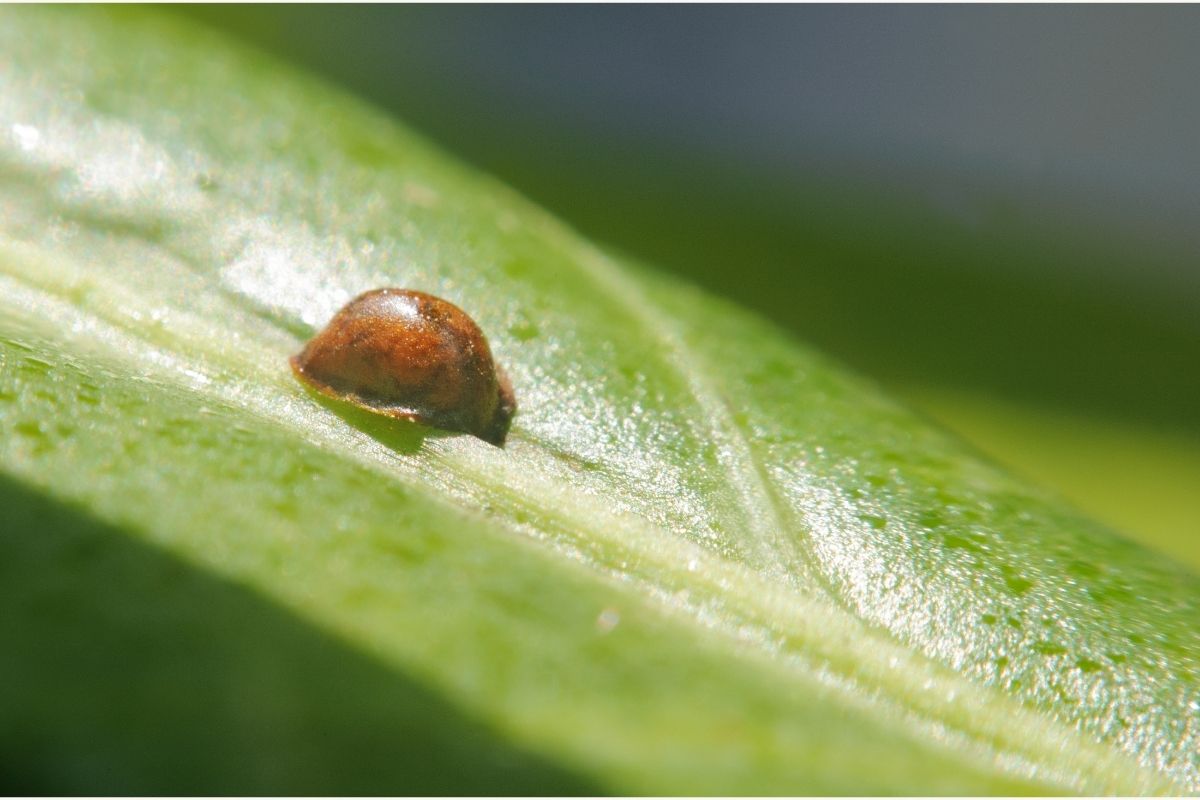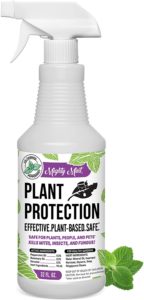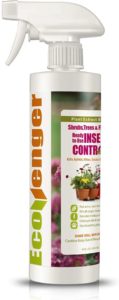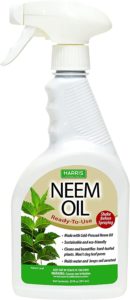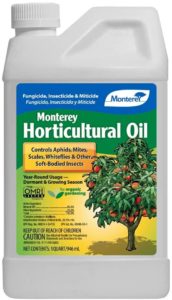Oh no, your precious pothos plant is starting to have some strange-looking scales on its leaves. This is bad news for your pothos, as these are not just any scales, but predators that thrive upon the sap of your plant. Whether you have new plants or already established plants, you will want to be sure to care for your houseplants and make sure that they are safe and healthy from pests.
This post will help you learn how to identify scale insects on your pothos, and share some natural and beneficial remedies to take care of your infested plant. Scale insects are one of the most annoying houseplant pests to deal with, so you will want to make sure you know how to identify them before your plant becomes heavily infested.
how to identify and get rid of scale insects on pothos plant
You can tell there may be a scale infestation if the gorgeous heart-shaped leaves on your pothos plant have yellowing leaves with brown spots or stunted leaves. You may be noticing that your plant has poor growth. Other signs to tell if your plant has scale, is that you will see round or oval bumps on the stems & leaves or black sooty mold from the secretion of sap.
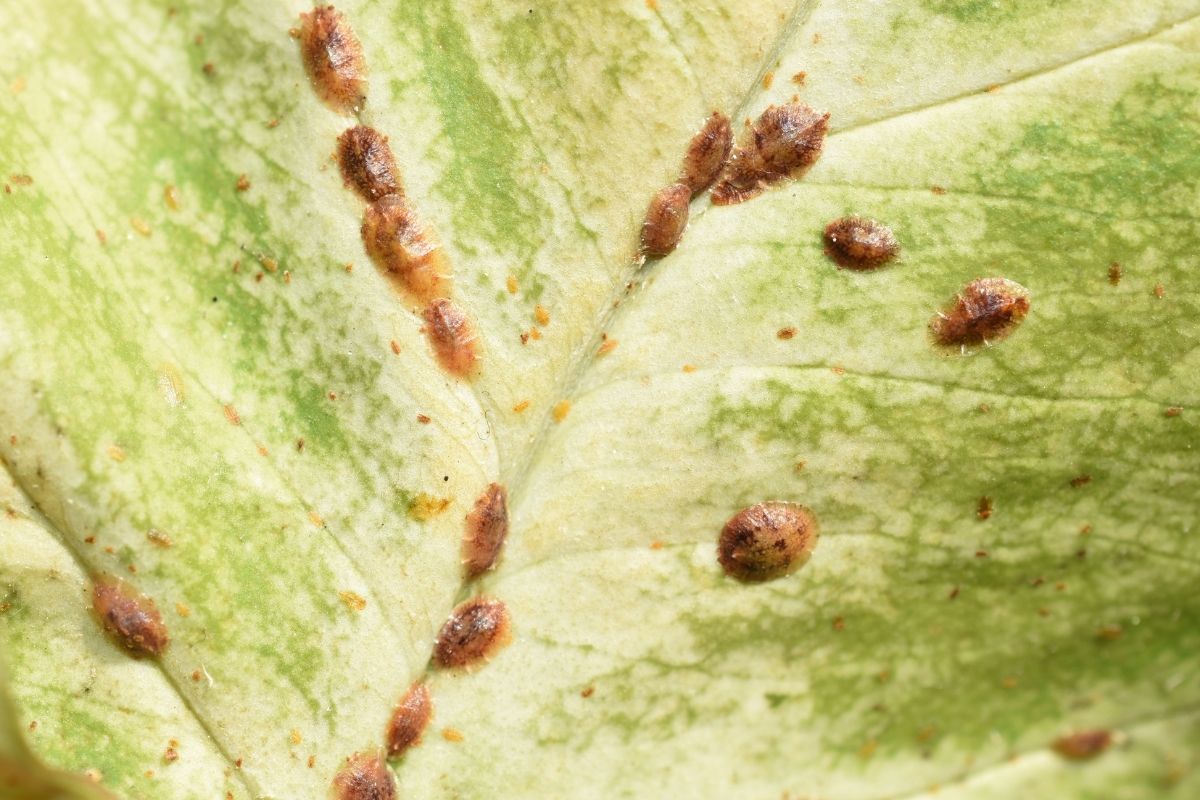
At first, it is hard to tell since these insects have protective shells that sometimes blend into the plant. They do not move much, and can be found anywhere on the plant. Even if you remove all of the scale insects, it may be hard to see their eggs with the naked eye.
They are small, oval-shaped round insects that suck honeydew out of the stems and leaves of pothos. Scale insects have a protective shell that looks light to dark brown. There are even two types of scale insects: soft scale & hard scale. Soft scale has a waxy shell that protects them, and they produce honeydew while feeding on the plant. A hard scale infestation means that they do not produce honeydew while feeding, but they are more protected with their hard shell.
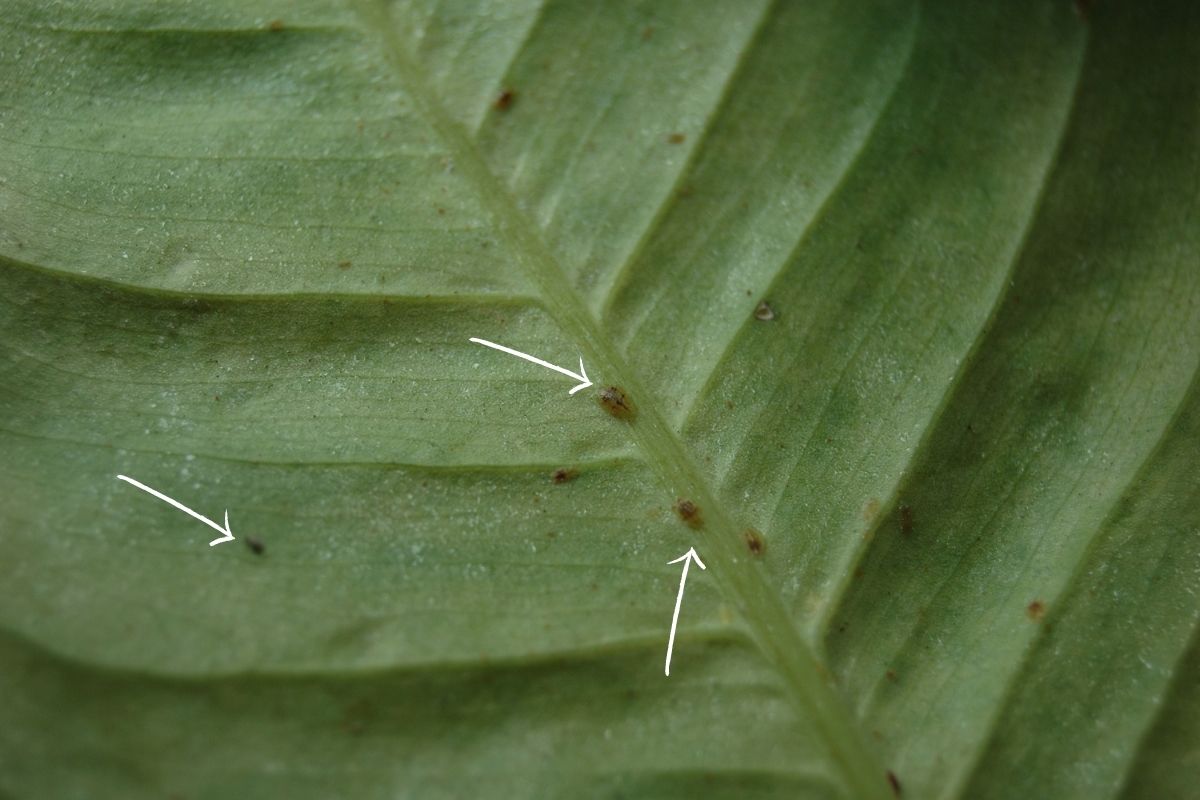
You will also be able to tell, because your plant will be exuding some sticky drops out of the leaves, which can also be caused by high humidity. Keeping humidity levels low can improve the overall health of your pothos and help prevent these insects from thriving.
Unfortunately, due to the fact that scale insect eggs and nymphs are so tiny you might not be able to tell if your plant has scale until there is an actual infestation. It takes a few weeks for the nymphs to hatch into adults and their entire life cycle lasts 7-10 weeks.
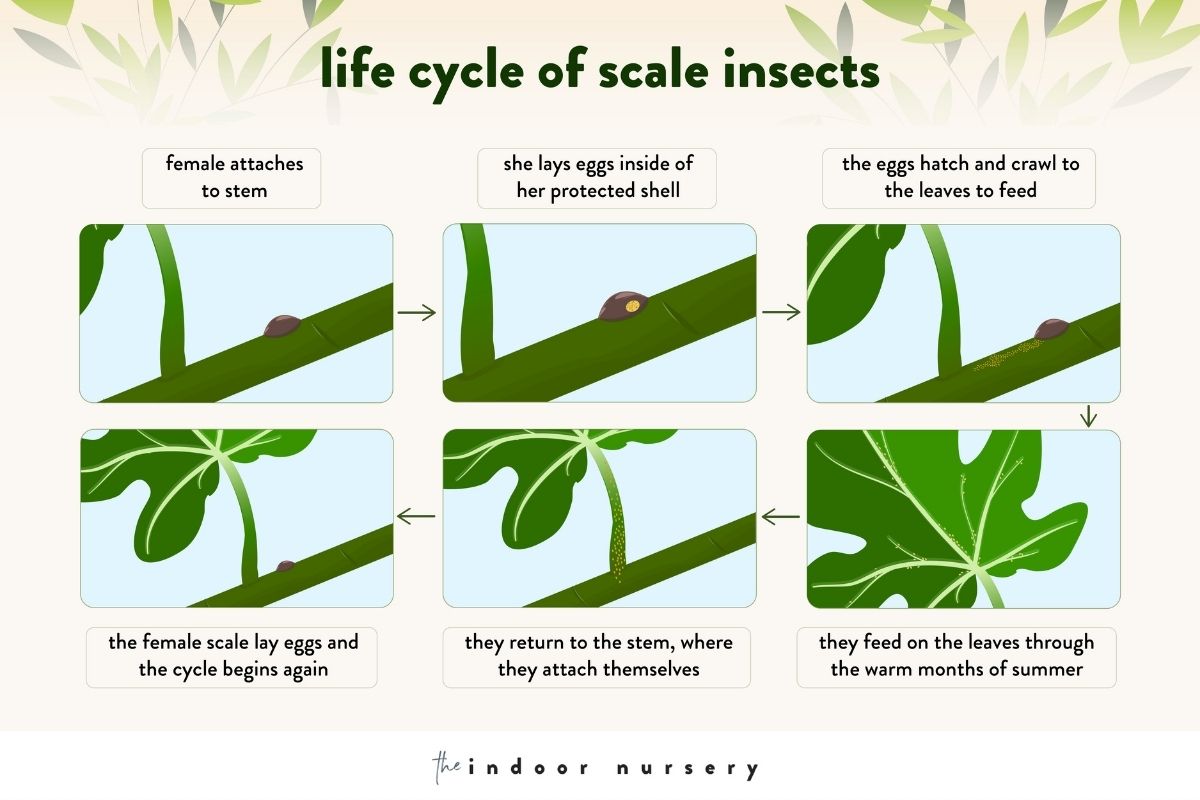
how to get rid of a scale infestation on pothos plants
- The first way to get rid of scale on your plant is not the most inviting—you will need to remove as many as you can by hand (with your fingernail). If you, like most people, are disgusted by this, then you can use a tool to remove them or use a cotton swab dipped in rubbing alcohol.
- Make sure you check all the crevices of your plant, including all the leaf and stem joints and underneath the leaves since they like to hide. Check the roots and stem of your pothos. This treatment works better for small infestations.
- Next, you will need to remove all of the sooty mold or sticky sap from your plant by thoroughly washing it with water.
- Once you have finished washing it, you can spray it with a natural, organic insecticidal soap or make your own. A recipe we recommend using is 1 tsp of organic mild liquid soap (like Dr. Bronner’s) per 1 liter of water. You can also make a mix with neem oil, mild dish soap & water.
- If you don’t have time to make your own blend, you can buy an organic insecticidal soap.
- Spray this directly onto the leaves of your pothos plant and wash the leaves, while continuing to remove the scale insects. Keep repeating this process daily until you have gotten rid of the infestation.
Make sure that if one plant has scale, that is it not touching your other houseplants. You can pre treat your other plants with an organic insecticidal spray made with neem oil.
Neem Oil
Neem oil is a super natural insecticide for treating scale on houseplants. You can pretreat your houseplants with this solution.
According to the University of New Hampshire, neem oil kills insects through suffocation & is most effective against immature insects. Neem oil can prevent fungal disease in plants, stopping an infected plant from getting more sick, but it won’t completely cure a plant if it’s already infected.
To prepare your own spray, mix about 1-2 teaspoons of neem oil and 1-2 teaspoons of natural soap with a gallon of warm water.
It is a good idea to test a small area on your plant with neem oil, to make sure the leaves are not damaged. Read our full guide on how to use neem oil to learn more about when to use it and how.
FAQs
What causes stunted leaves on pothos?
This can be due to nutrient deficiencies, low light or insect infestations.
What if I have a severe infestation?
If the natural solutions are not working for you, then it is possible for you to use a systemic insecticide, but this will be very toxic for you and your plant. These toxic chemicals may even keep beneficial insects away from your plant. If you really need to use this option for your indoor plant, make sure to dilute the solution with some water. Spray the diluted mixture onto the leaves where the infestation is and carefully monitor your plant.
How do you remove scale from pothos?
You can remove scales by using a cotton swap with alcohol, removing them with your fingernails or with soap. Alcohol should be strong enough to kill the scale insects, but you will still need to remove the dead insects by hand.
What does scale look like on pothos?
As we mentioned above, scale can look like oval-round hard shaped bumps along the stems and leaves of your plant.
What causes scale on plants?
Scale on plants is usually due to the plant having too much humidity. This attracts the scale insects, as they need plenty of moisture around them and the droplets of honeydew attract them. Scale insects specifically attach to the leaves and feed on the honeydew. Without the wetness, they will dry out and die.
Make sure not to overwater your houseplants or leave them sitting in standing water. Sick or unhealthy pothos are especially vulnerable to scale bugs.
It can also be caused by over fertilization. If the soil has too much nitrogen in it, it will cause the leaves on your pothos to be thinner and weaker which makes it more susceptible to insects.
Can scale spread to my other houseplants?
Yes, you have to be really careful especially if you have indoor plants. These bugs can be found indoors or outdoors. Check your plants carefully and use a preventive such as an organic spray with neem oil for extra protection.
How to make an herbal spray for indoor houseplants?
If you really love to make your own home remedies, you can make an herbal water spray with garlic, mint, lavender, and other plants. Essential oils that are most effective in repelling insects are peppermint & rosemary oil. Add some water and liquid castile soap to your blend and put it in a plastic spray bottle.
best scale insecticide for houseplants
Botanical sprays are super effective in removing an infestation of houseplant pests. Be warned, though, that these products can be quite harsh for many plants, so don’t go overboard. Only use these products if there is an infestation already underway. Test on a small area first to see how the plant responds. If there is an infestation, it’s likely that the plant has a weakened immune system, so may not be able to withstand excessive use of insecticide.
Mighty Mint Plant Protection Peppermint Spray
This spray bottle is full of an amazing, effective & plant-based formula to protect your plant from spider mites, insects and fungal disease. The active ingredients include peppermint oil, rosemary oil, geraniol & more. It is one of the best natural plant protective sprays for your indoor houseplants.
EcoVenger Insect Control Plant Based Formula
This insect control spray is also plant-based, but with a bit of a stronger formula that instantly removes horticultural insects upon contact. It’s active ingredients are botanical, and it is effectively used to eliminate and prevent any natural predators to your plants. It does not contain pesticides or toxins. Make sure to follow instructions & mix with water if you have more delicate or sensitive plants.
Harris Neem Oil Spray for Plants
This is made from sustainable and cold-pressed neem oil. Neem oil is completely organic and natural and perfect to be used as a pre-treatment for prevention. It keeps your plants looking healthy and makes them have shiny leaves. (If you have heavy infestation, it is recommended to use insecticidal soap, but you can always use some neem oil on your plant to help with the treatment.)
If your plant is heavily infected and you need something really strong, horticultural oils are the way to go. This horticultural oil made with mineral oil is meant for killing all insects and controlling their eggs as well.
More about pothos
- How Often To Water Pothos Plants (And When To Cut Back)
- Marble Queen Pothos Care Guide
- How To Make Pothos Fuller (In 5 Minutes)
- Our top pothos fertilizer picks for luscious vines
- Golden Pothos plant care: how to keep them happy
- Pothos root rot: what to look for and how to fix it
- How to grow pothos in water for *decades*
- Tags:
- pest control
- Pests

